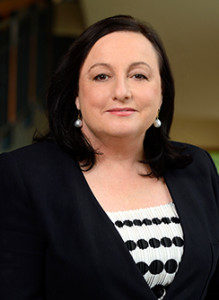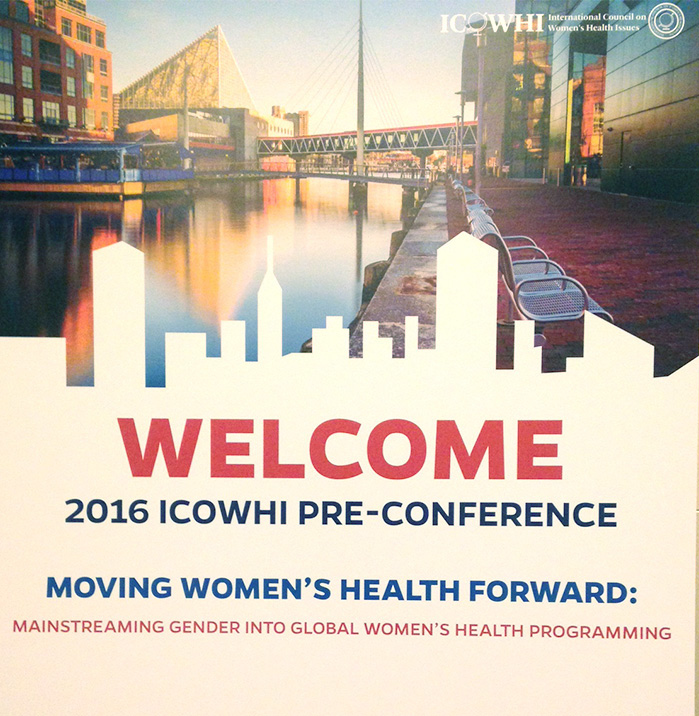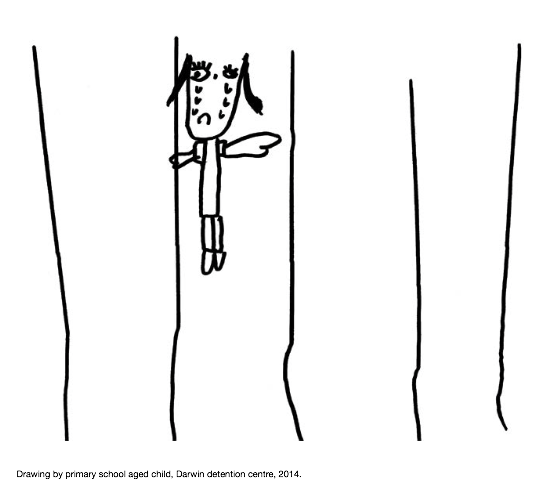Monday, November 7
Opening Remarks, Dean Patricia Davidson of Johns Hopkins School of Nursing:
“Often in history, women are less visible.” This was just one of Dean Davidson’s inspirational opening remarks on the first morning of the 21st International Council on Women’s Health Issues (ICOWHI) Congress held in Baltimore, Maryland. She spoke of the legacy that women have left in Baltimore as she welcomed an international gathering of champions for women and women’s health. Dean Patricia Davidson appealed for cooperation, strength, and support among those in the ballroom as she spoke of the complex diplomacy required to achieve change in the global health arena.
“The health and wellbeing of women is the health and wellbeing of the world,” was one of the many underlying themes of the 21st congress. Dean Davidson spoke to the progress that needs to be made in order to influence the seventeen Sustainable Development Goals (SDGs) by the year 2030. She supported this with information about the mediation of health outcomes through the social determinants of health. Statistics such as rates of sexual abuse, HIV/AIDS prevalence, and intimate partner violence were among the points driving home the importance of advocacy for women’s health. Dean Davidson’s speech inspired urgency to act and a change in the status-quo.
The Phyllis Stern Award was presented to Senator Barbara Mikulski for her dedication to the rights and health of women through her service in the United States Senate. The Taylor and Francis Award was presented to Dr. Jacquelyn Campbell for her research on the effects that intimate partner violence has on women, families, and communities. Both of these women have contributed to the advancement of women’s health through advocacy for change and influence on public policy. Dean Davidson emphasized the contribution of Senator Mikulski and Dr. Campbell with one statement: “We stand on the shoulders of giants.”
Gender equality and empowerment: the key to the health of women and societies.
Uncovering voices, empowering women: the key to sustainable development.
-Dr. Afaf Meleis, Dean Emerita and Professor at the University of Pennsylvania School of Nursing and Dr. Ana Langer of the Harvard T.H. Chan School of Public Health.
“I am here because I’ve learned a lot from my colleagues around the world…I am who I am because of all of those people and all of those women who have shared their stories with me.”
Dr. Afaf Meleis opened the first general session with these humbling words, and continued to stress the progress made in the women’s health agenda throughout her discussion. She reported that women are healthy when they feel valued, acknowledged, and empowered. Another important point was that healthy women contribute to healthy families, which leads to healthy communities and overall healthy societies. Dr. Meleis also voiced that progress for women’s health should not be measured only in mortality rates, but requires much more to adequately understand what contributes to the health of women. This transitioned fluidly into a woman’s self-concept and her ability to have control within her family structure. There exists a power differential within a family and only when this is acknowledged can we truly begin to influence the decision making that occurs within a family unit. This was expanded upon with discussions about modernization and urbanization today. Although there are increases in education, access to services, and opportunities for employment, women are limited in their ability to benefit by societal structure. This social construct often places women at the periphery of change, unable to fully benefit from advances. Women are often vulnerable to harassment and violence because of these inequities that are caused by the gender divide and subsequent power struggles. This, in turn, causes women to carry a disproportionate burden of disease as they take on demands from the multiple roles they are expected to fulfill.
Women want economic security. Instead they are exploited, devalued, overloaded, marginalized, and underpaid with minimal authority. Dr. Meleis touched on the importance of identifying barriers such as the lack of a coherent framework for women’s health, the narrow focus in the education of health professions, and in policy and law. She called for a redefinition of women’s work and the enabling of safe environments where women can seek opportunities, progress, and leadership. An environment free from incivility, devoid of aggression, and with facets supporting women for their contributions is long overdue. The Dean Emerita spoke of investing in the development of nursing to improve health, but also to promote gender equality and support economic growth as well.
Dr. Ana Langer of the Harvard T.H. Chan School of Public Health followed Dr. Meleis with an inspired dialogue about the quality of healthcare for women and families. She advocated for the approach to improving women’s health and place in society through women and health as a conceptual framework. There is overlap between women and health, which is affected by economic, environmental, social and demographic transitions. These transitions are influenced by gender equality, human development, human rights, culture, and social justice. Dr. Langer advocated for a life course approach rather than the compartmentalized view that separates women into age groups and specific conditions. She encouraged us to take the view that women have needs throughout their life, and that each stage of life influences the health and wellbeing at subsequent stages, as well as those of the next generation. Both positive and negative effects on health accumulate over time, and this holistic view is underrecognized in the field of women’s health. The chronicity of many conditions over the lifespan was emphasized by Dr. Langer, and clearly resonated with the audience.
Dr. Langer explored several examples of the disproportionate burdens that women face. Both obesity and malnutrition are more common in women. Women are more susceptible to economic, sociocultural, and geographic barriers while being subject to stigmatization and discrimination. Aggressive marketing strategies target women with images of independence, weight loss, and femininity. Women are less likely to be included in research studies, which limits their applicability to half of the population. Women need to be included in research studies, and findings should be published with sex-segregated statistics. Women account for the vast majority of healthcare provision yet remain unrecognized, uneducated, and uncompensated. Dr. Langer called for valuing women by ensuring access to gender-responsive healthcare, policies, and programs. Women can positively impact sustainability through gender equality and health, if only given the opportunity.
General Session: An impact agenda for women’s health
Dr. Keith Martin, Executive Director for the Consortium of Universities for Global Health (CUGH)
“The public moves the political.”
Dr. Keith Martin, Executive Director for the Consortium of Universities for Global Health (CUGH), gave a powerful and energetic speech focused on the political aspects of women’s health. He said that in order for us, as advocates of global health, to implement what we know and to address the challenges facing us today, we must get political. “The public moves the political,” Dr. Martin stated. “The rules of war are being rewritten as we speak.” He used research from the forgotten conflict that continues in the Democratic Republic of Congo (DRC) to emphasize the effect a population on the political and how a distance between the governed and the governing can be devastating. Five million individuals have been killed and one million women have been raped in this devastating conflict. However, this is largely unheard of in the media. There is one psychiatrist for every one million people, and it is among the five most dangerous countries for women to live in. What makes the DRC so unsafe are the lack of women’s rights, the lack of access to healthcare, and the lack of strong governments and public institutions. When the relationship between the citizens and the government is fractured, the result is a cycle of instability and conflict.
Dr. Martin voiced that not only are there gross human rights abuses taking place, but that this is compounded by the direct targeting, violence, and assassination attempts against medical providers, emergency responders, and health facilities. He emphasized the importance of engaging colleagues and developing partnerships in low and middle-income countries (LMICs) rather than a adhering to a strict research-based agenda. Several suggestions were offered for impacting health such as train the trainers programs, sharing access to online resources and libraries, long-term relationships with partners in LMICs, involving researchers from LMICs, strengthening broadband access, and participating in outreach to low-income and minority-serving institutions. Dr. Martin also encouraged engaging the public. “In order to influence government,” he said, “we need to educate the public on policies and events of interest.” This will support the maintenance of pressure on governmental institutions, and serve to influence the political changes necessary to move forward.
Overall, it was a morning full of passionate advocacy for women’s health, gender equality, and global impact. The issues posed were thought-provoking and the potential solutions empowering. These engaging individuals were surrounded by enthusiasm from the congress, providing a strong start for ICOWHI’s first day in Baltimore.
Lauren Ayres





